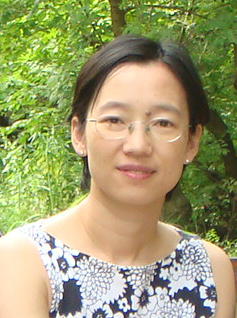
Hilda B. Ye, PhD
The Role of BCL-6 Regulated Chemokine Expression in the Pathogenesis of B-Cell Lymphomas
Non-Hodgkin’s lymphoma (NHL) is the most common form of lymphoid malignancy in the adult population. Despite the advent of new drugs and treatment regimens, only 50% of NHL patients are cured, calling for the need of better understanding of the pathogenesis of these cancers and the discovery of therapeutic agents with new mechanisms of action. There is evidence that a proto-oncogene known as BCL-6 plays a role in the pathogenesis of diffuse large cell lymphoma, a lymphoma that affects specialized immune cells known as B-lymphocytes (or B-cells for short). A proto-oncogene is a gene whose protein product is capable of producing some kind of cellular transformation if the gene becomes damaged or mutated. Normal B cells temporarily express BCL-6 protein during their lifetimes. However, in lymphoma cells BCL-6 expression continues, and this continued expression of BCL-6 may be necessary for the continued survival of the malignant cells. Dr. Hilda Ye proposes to study precisely how BCL-6 acts to maintain tumor cell growth, and whether it is essential to the continued growth and survival of tumor cells. Specifically, she plans to investigate whether BCL-6 plays a role in the regulation of apoptosis (the self-destruction of cells) that may explain its effects on tumor survival. She will also look for target genes that may be part of a genetic pathway involving BCL-6. As part of this research, Dr. Ye will also explore the therapeutic potential of using cutting-edge antisense technology to decrease the malignancy of lymphoma B cells. If so, this may potentially lead to future development of antisense therapeutic agents.